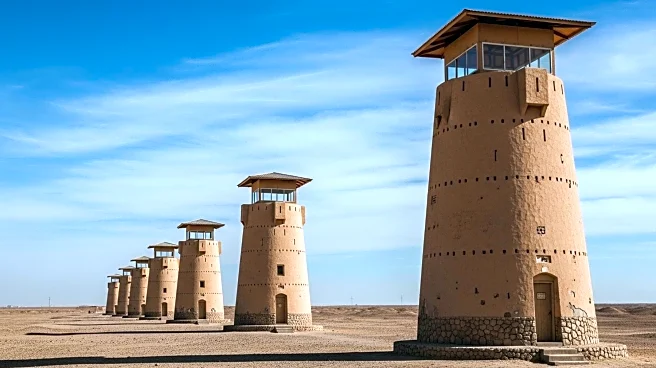What is the story about?
What's Happening?
The Israel Defense Forces (IDF) have shifted to a defensive mode in their operations within the Gaza Strip, according to reports. While Gaza City remains under siege, the IDF has decided not to advance beyond the lines it has already reached. This strategic shift comes amid ongoing tensions and conflict between Israel and Hamas. The decision to maintain current positions rather than pursue further offensive actions reflects a change in military strategy, possibly aimed at reducing casualties and stabilizing the situation in the region.
Why It's Important?
The IDF's shift to a defensive strategy in Gaza is significant as it may indicate a move towards de-escalation in the conflict with Hamas. By holding their current positions, the IDF could be aiming to minimize further violence and civilian casualties, which have been a major concern in the ongoing conflict. This decision might also be influenced by international pressure and calls for peace from various stakeholders. The change in strategy could impact future negotiations and diplomatic efforts to resolve the conflict, potentially leading to a more stable and peaceful situation in the region.
What's Next?
The IDF's defensive stance may lead to new diplomatic initiatives aimed at achieving a ceasefire or peace agreement between Israel and Hamas. International actors, including the United Nations and neighboring countries, might increase their involvement in mediating the conflict. The situation in Gaza will continue to be closely monitored, with potential humanitarian efforts to support affected civilians. The IDF's strategy could also influence future military planning and operations in the region, as both sides assess their positions and consider next steps.
Beyond the Headlines
The shift to a defensive strategy raises questions about the long-term implications for the Israel-Hamas conflict. It may reflect a broader trend towards more cautious military engagements, prioritizing stability over aggressive tactics. This development could influence military doctrines and policies in other conflict zones, as nations reassess the balance between offensive and defensive strategies. Additionally, the situation in Gaza highlights the complex interplay between military actions and humanitarian concerns, emphasizing the need for comprehensive approaches to conflict resolution.
















